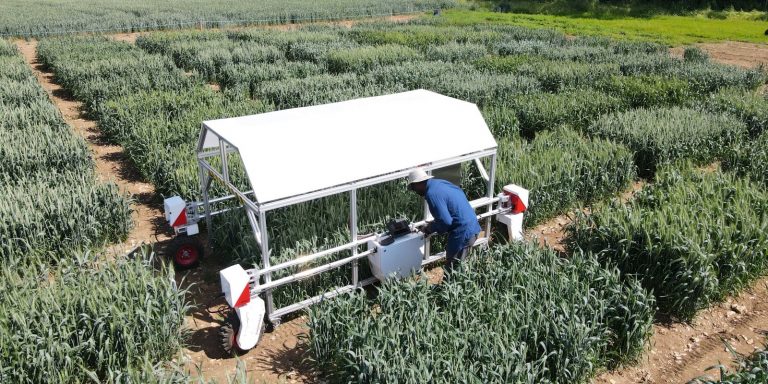Assets of Leeds-based print specialists to be sold as company ceases to trade
£26.5m White Rose Rail Station takes significant step forward
Hull welcomes £20m funding boost as Levelling Up Partnership plans revealed
Careers hubs aim to get more young people to sign up to apprenticeships
Funding boost to bring new life to Hull office building
Rural communities could ‘wither and die’ without reliable broadband, says tech boss
Rural communities could wither and die without reliable, high-speed broadband, an event for businesses in Lincolnshire has heard.
Just under half of the UK has no access to fibre broadband, with rural communities such as those in Northern Lincolnshire often neglected by major broadband providers. Sean Royce, CEO of rural broadband provider Quickline, said poor connectivity meant rural areas were “going backwards in terms of economic activity” because they were digitally disadvantaged in comparison with well-connected cities and towns. Speaking during an event as part of the Great Big Small Business Festival in North Lincolnshire, run by business support group E-Factor, Mr Royce said Quickline’s mission was to tackle the digital divide between rural and urban areas. He said: “We all know rural communities which have lost access to services such as their bank, Post Office, library, GP surgery or even their local shop, with people forced to drive miles to their nearest market town for services. “Those people depend on having a fast, reliable broadband service to carry out their day-to-day tasks. But, for many living in rural areas, that service does not exist. “For rural businesses, it’s no different. Without access to high-speed broadband, businesses will move from rural areas to towns and cities and rural communities will wither and die. “Put simply, the better broadband a business has, the more services they can offer and the more markets it opens up for them. Digital connectivity drives economic growth and its importance cannot be overstated.” Mr Royce said high-speed broadband was now critical to every aspect of life. “Those businesses that can’t access it or don’t embrace it, and the technologies it enables, will miss opportunities or, worse, go the same way as Blockbuster.” He emphasised that the rollout of full fibre broadband was the second largest infrastructure investment in the UK and the largest privately-funded one.Business confidence is on the up in South Yorkshire survey finds
Universities share in multi-million pound grant to drive development of agro-tech
The Universities of Lincoln and Cambridge have been awarded a £4.9 million grant from the Engineering and Physical Sciences Research Council to help fund their drive to make the Lincolnshire and north Cambridgeshire region a global innovation centre for agricultural technology.
Bradford-based Business Enterprise Fund appoints new Chairman
The Bradford-based not-for-profit Business Enterprise Fund has appointed Tim Hamilton as the new chair of the board of directors.
The appointment comes as BEF also unveils key findings from its latest social impact report, showcasing the organisation’s commitment to fostering economic growth and sustainability in communities across the north.
Tim, a partner at Pannone Corporate, continues to enjoy a longstanding and successful career within the legal profession. He is an experienced leader who champions relationships and collaboration in business as keys to long term success.
“We are delighted to welcome Tim as the new chair of the board,” said CEO Stephen Waud. “His leadership, vision, and dedication to fostering economic development align perfectly with our mission to empower businesses and create positive social impact. We are confident that Tim will help guide BEF to even greater success in the years to come.”
BEF’s board of directors has eight members:
- Alex Beardsley, Joint Managing Director of ABL Business
- James Mason, CEO of West & North Yorkshire Chamber of Commerce
- Katie Hurrell, CEO of Bradford District Credit Union
- Laurence Beardmore, Former Group Commercial Director of York Coffee Emporium
- Penny Hembrow, Former Senior VP, of CGI
- Simon Jackson, Director of Investments of BEF Group
- Stephen Waud, CEO of BEF Group
- Tim Hamilton, Partner – Corporate Services of Pannone Corporate
Mr Hamilton said: “It is an honour to be asked to serve as chair at BEF and I am looking forward to supporting its talented team in continuing to deliver the opportunities described in the social impact report.”
In summary, main points of the social import report are:- Investment: BEF invested £16m in new and existing businesses across the region helping drive the local economy.
- Business created: BEF helped create 396 new UK businesses, helping individuals to make their business dreams a reality.
- Job creation: BEF has played a pivotal role in job creation across the region, with 1,885 of jobs supported by BEF-backed businesses in the past year alone. These jobs contribute to the local economy and improve the livelihoods of individuals and families.
- Diverse entrepreneurship: The report reveals that BEF has continued to champion diversity in entrepreneurship, with women-led businesses making up 34% of its clients while 14% of its clients are ethnic minority led businesses. This commitment to inclusivity fosters a more equitable business landscape.
- Community Engagement: BEF remains dedicated to giving back to the communities it serves. In the past year, the organisation raised nearly £10,000 in to support good causes, strengthening its ties with local stakeholders.












